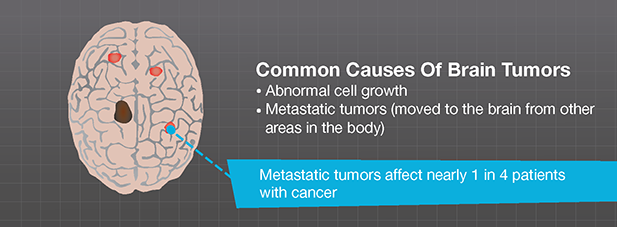What Causes Brain Tumors In Cats
Brain tumors are a pathological condition that can affect both humans and animals, including our beloved feline companions. Understanding the causes of brain tumors is crucial for developing effective treatments and preventative measures. In this article, we will explore the latest research and insights into the causes of brain tumors.
What are Brain Tumors?
Brain tumors are an abnormal growth of cells within the brain. Tumors can be benign or malignant. A benign tumor is made up of non-cancerous cells and does not spread to other parts of the body, whereas a malignant tumor consists of cancerous cells that can invade and damage surrounding tissue.
The brain is one of the most complex organs in the body and controls all of our thoughts, emotions, and bodily functions. When a tumor forms in the brain, it can disrupt the normal functioning of the brain and cause a range of symptoms, including headaches, seizures, and changes in behavior.
Causes of Brain Tumors
There is still much to be learned about the causes of brain tumors, but researchers have identified several risk factors that may increase the likelihood of developing a brain tumor.
One of the primary risk factors for brain tumors is exposure to ionizing radiation. This type of radiation is produced by high-energy particles and can be found in medical imaging technologies such as X-rays and CT scans. Exposure to ionizing radiation over a prolonged period can increase the risk of developing a brain tumor.
Another risk factor for brain tumors is genetic mutations or inherited disorders. In some cases, mutations in specific genes have been linked to the development of brain tumors. Additionally, certain inherited disorders such as neurofibromatosis type 1 (NF1) and tuberous sclerosis complex (TSC) have been associated with a higher risk of developing brain tumors.
Environmental factors such as exposure to certain chemicals and toxins have also been linked to a higher risk of developing brain tumors. For example, exposure to pesticides, solvents, and other chemicals has been associated with an increased risk of developing brain tumors.
Brain Tumors in Cats
Cats can also develop brain tumors, and the causes of these tumors can be similar to those found in humans. One study found that the most common type of brain tumor in cats is meningioma, which is a slow-growing tumor that develops in the membranes surrounding the brain and spinal cord. Other types of brain tumors that can occur in cats include gliomas and choroid plexus tumors.
The symptoms of brain tumors in cats can be similar to those in humans, and can include seizures, loss of coordination, and changes in behavior. If you suspect that your cat may have a brain tumor, it is important to seek veterinary care as soon as possible.
Treatment Options
The treatment for brain tumors depends on several factors, including the type of tumor, its location, and the overall health of the patient. Treatment options may include surgery, radiation therapy, chemotherapy, or a combination of these treatments.
Surgical removal of a brain tumor is the most common treatment option for benign tumors, as removing the tumor completely can provide a cure. For malignant tumors, surgery may be combined with radiation therapy or chemotherapy to improve the outcome.
Radiation therapy uses high-energy radiation to kill cancer cells and shrink tumors. Chemotherapy uses drugs to kill cancer cells and can be used as a standalone treatment or in combination with other therapies.
Conclusion
Brain tumors can be a devastating diagnosis, but advances in research and treatment options have provided hope for patients and their families. While there is still much to be learned about the causes of brain tumors, identifying risk factors and seeking veterinary care at the first sign of symptoms can improve the outcome for cats.
It is vital that you take care of your health and your pet’s health by minimizing exposure to ionizing radiation, taking precautions to avoid environmental toxins, and seeking veterinary care at any unusual symptoms immediately.

Taking due care of your pet's health will ensure that they remain healthy and happy, thus enhancing your bond with them. In a nutshell, a bit of caution and care can go a long way in preventing or managing brain tumors in both humans and their feline companions.

If you suspect that your cat may be suffering from a brain tumor, or if you have any concerns about your pet’s health, please do not hesitate to consult with a veterinarian, as they will be able to provide the best possible treatment options.